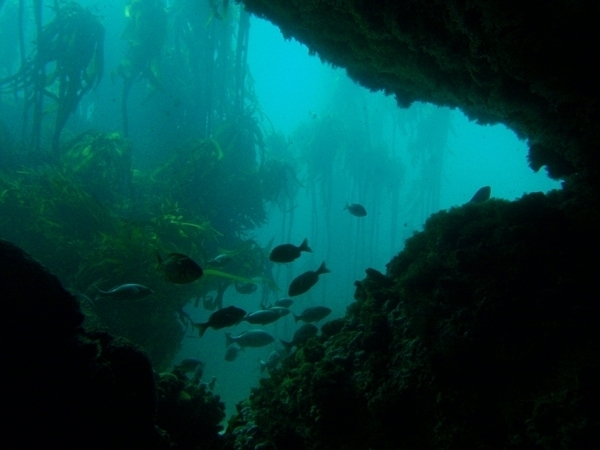“planting of kelp forests, farming of shellfish and the planting of artificial reefs to provide surfaces for marine flora to flourish and, as with the seagrass, enhancing the natural productivity” [Prof Michael Crawford: “The Shrinking Brain”]
A seagrass or kelp project for Lyme Bay?
.
For some time now, research and work in the field has been telling us that restoration of seagrass habitat leads to rapid recovery of coastal ecosystem services, by which we mean “well-developed meadows now foster productive and diverse animal communities, sequester substantial stocks of carbon and nitrogen”.
We know very well now that seagrass restoration is possible, with insights and lessons from Australia and New Zealand, for example. Nearer to home, recently a huge seagrass bed was discovered in Cornwall, which could help tackle climate change and now there is further determination to restore Cornwall’s seagrass.
For some time there have been explorations of a seagrass or kelp project for Lyme Bay. And this evening’s BBC Countryfile from the Seaton Wetlands also went out into Lyme Bay:
A fourth-generation fisherman shares how his family’s way of life has adapted since their local waters became a protected area, before Matt explores what that has meant for local marine life.
Indeed, the Lyme Bay Fisheries & Conservation Reserve is doing very well – with the University of Plymouth keeping an eye on the success story by monitoring the Lyme Bay exclusion zone.

There are so many benefits to these fields of seagrass – as discussed of all places on BBC Radio 4’s The Food Programme, with Professor Michael Crawford and a life through food:
Now in his 90s, Crawford’s pioneering research into the brain and nutrition has reshaped how we understand the essential role of food—especially Omega-3 fatty acids—in human development and health.
Long before Omega-3 became a buzzword on supermarket shelves, Crawford was uncovering its vital connection to brain function. His work, often at odds with mainstream science, has led to over 300 peer-reviewed papers and three books challenging conventional theories of human evolution and nutrition.
The programme also features chef and broadcaster Rick Stein, who reflects on Crawford’s influence and the importance of sustainable seafood. And we hear from Dr Anneli Löfstedt, a post-doctoral researcher at the University of Oxford’s Smith School of Enterprise and Environment, who is building on Crawford’s legacy by exploring the links between nutrition, sustainability, and the future of food systems.
As Prof Crawford suggests, our brains are shrinking:
The brain of H. sapiens evolved from a chimpanzee cranial capacity of 340cc to the peak of 1,500 to 1,700cc about 28,000 – 32,000 years ago. That encephalization was powered by the epigenetic force of wild foods, in which marine foods would have been essential to provide omega 3 DHA, and trace elements including iodine, essential for brain growth, function and maintenance. (Encephalization is an evolutionary increase in the complexity or relative size of the brain, involving a shift of function from non-cortical parts of the brain to the cortex.) The brain evolved in the sea some 500 million years ago using such nutrients and science shows they are still required today.
In recent times, the brain has been shrinking, likely due to the increasing reliance on intensively produced land foods and the decline in fish and seafoods.
Since 1950 there has been a 40% per capita decrease in fish landings in the UK and a decline in the fishing communities and ports. At the same time, there has been a decline in average IQs and an escalation of mental ill-health. Just recently the Children’s Society declared that there had been a 3-fold increase in hospital referrals for mental ill-health in children in the last 3 years. In March 2023, the Federation of European Neuroscientists declared that brain health was now a global emergency.
The continued shrinking of the brain and escalation of mental ill health can only end in disaster.
The solution lies in the restoration of destroyed sea beds with marine pastures, planting of kelp forests, farming of shellfish and the planting of artificial reefs to provide surfaces for marine flora to flourish and as with the seagrass, enhance the natural productivity.
At the same time this solution of marine enhancement fixes CO2. This has been done in Japan, starting in 1991. It is also being started in many other places including Scotland, Korea, Oman, Saudi, Australia, and in the US. It now needs to be escalated with energy which could create a new industrial revolution and a sea change in nutrition and brain health. It is all in our book, The Shrinking Brain by Crawford and Marsh, just published.
…